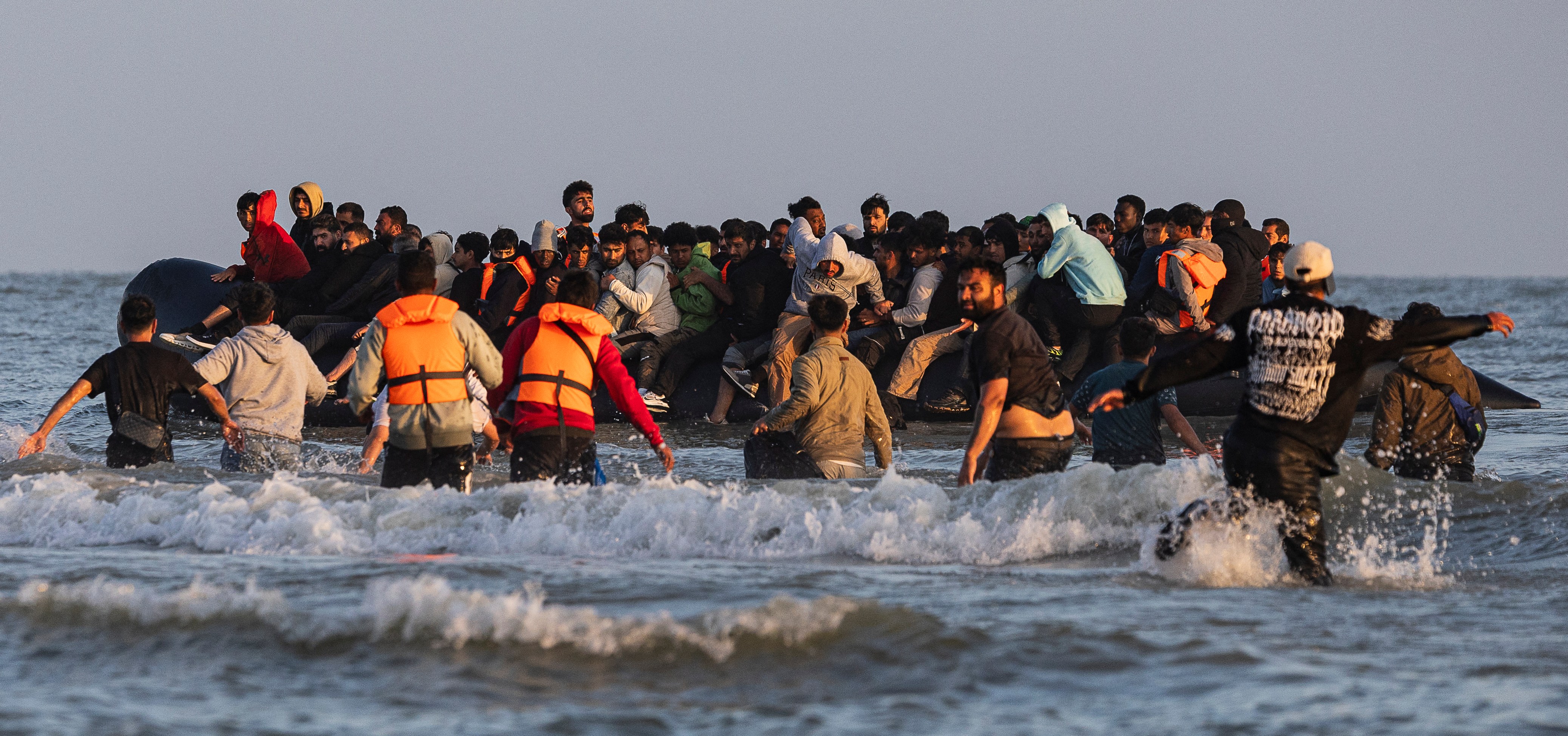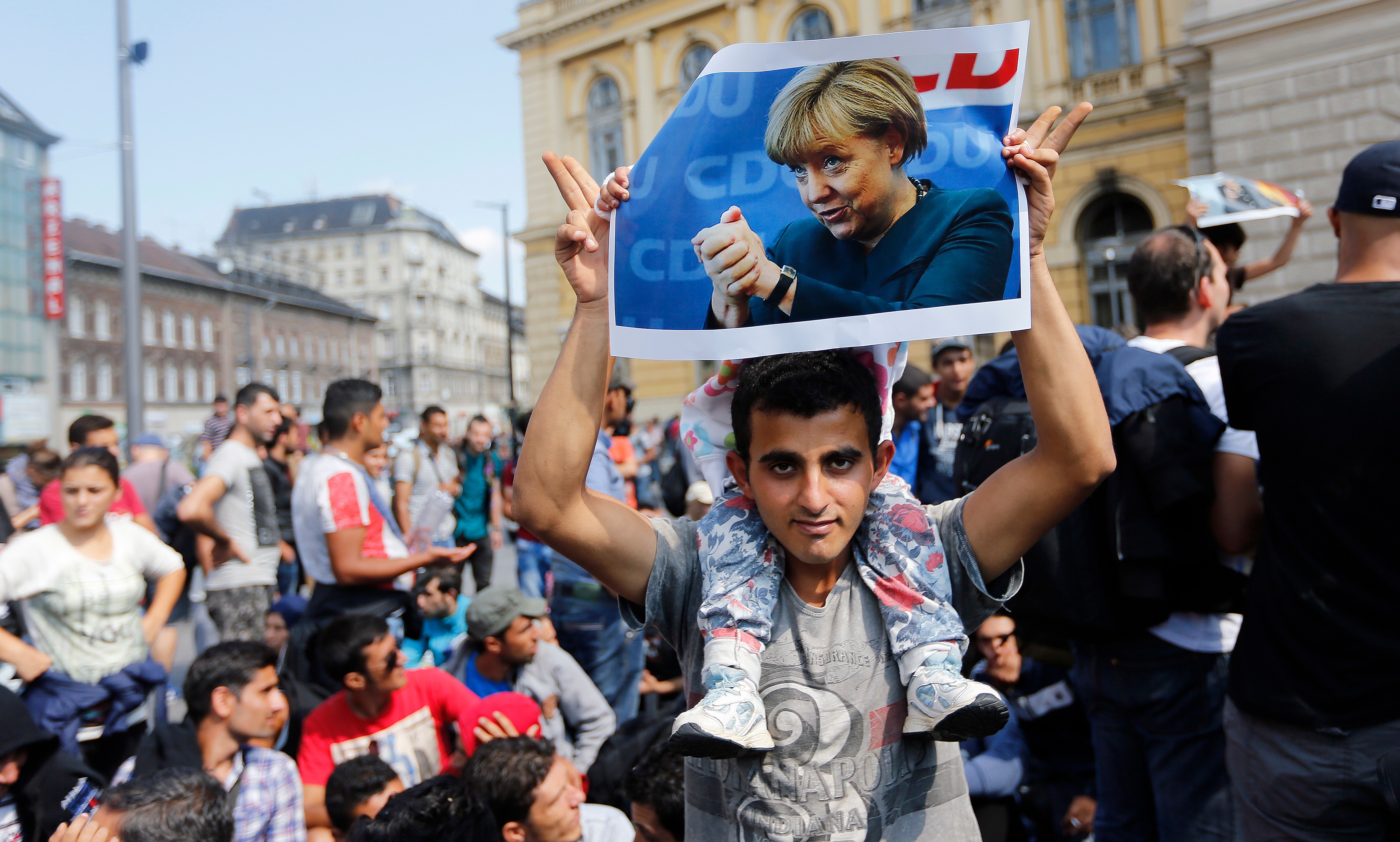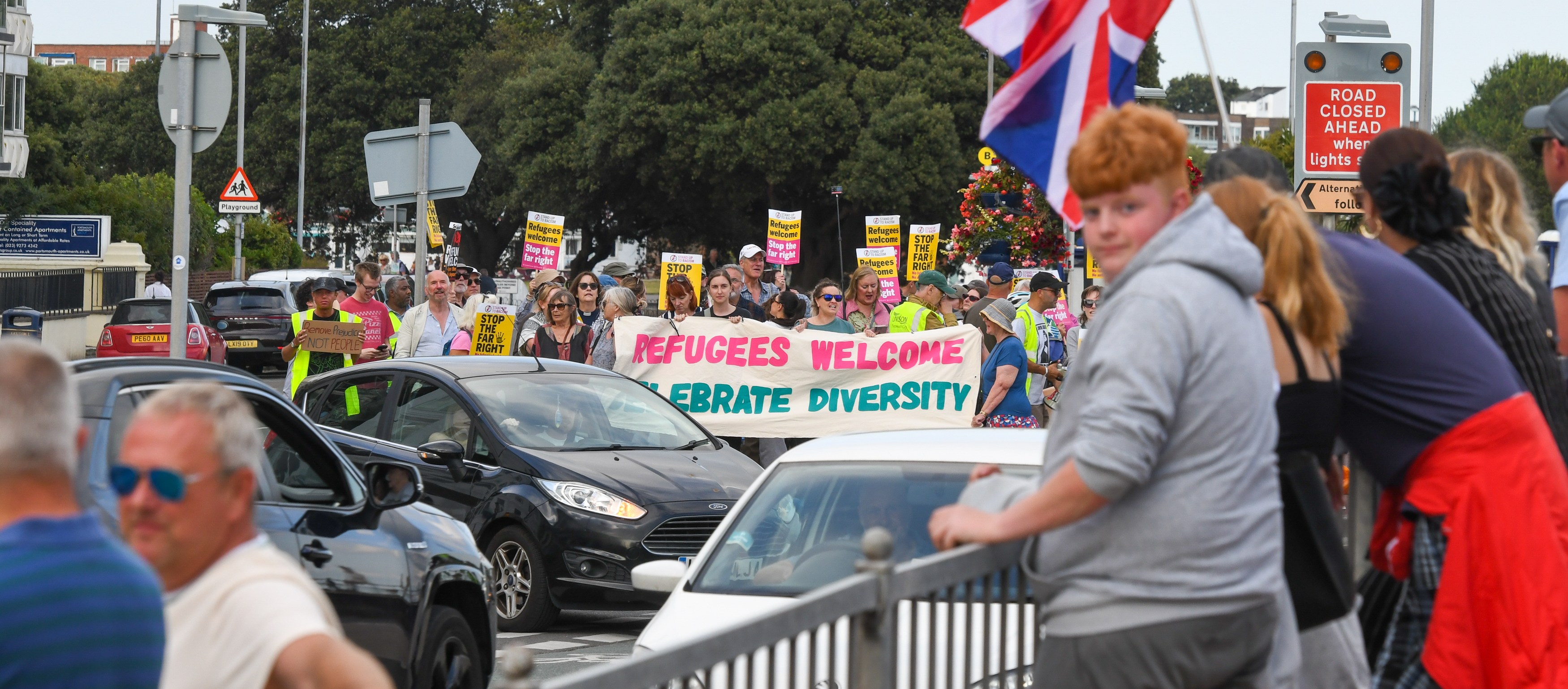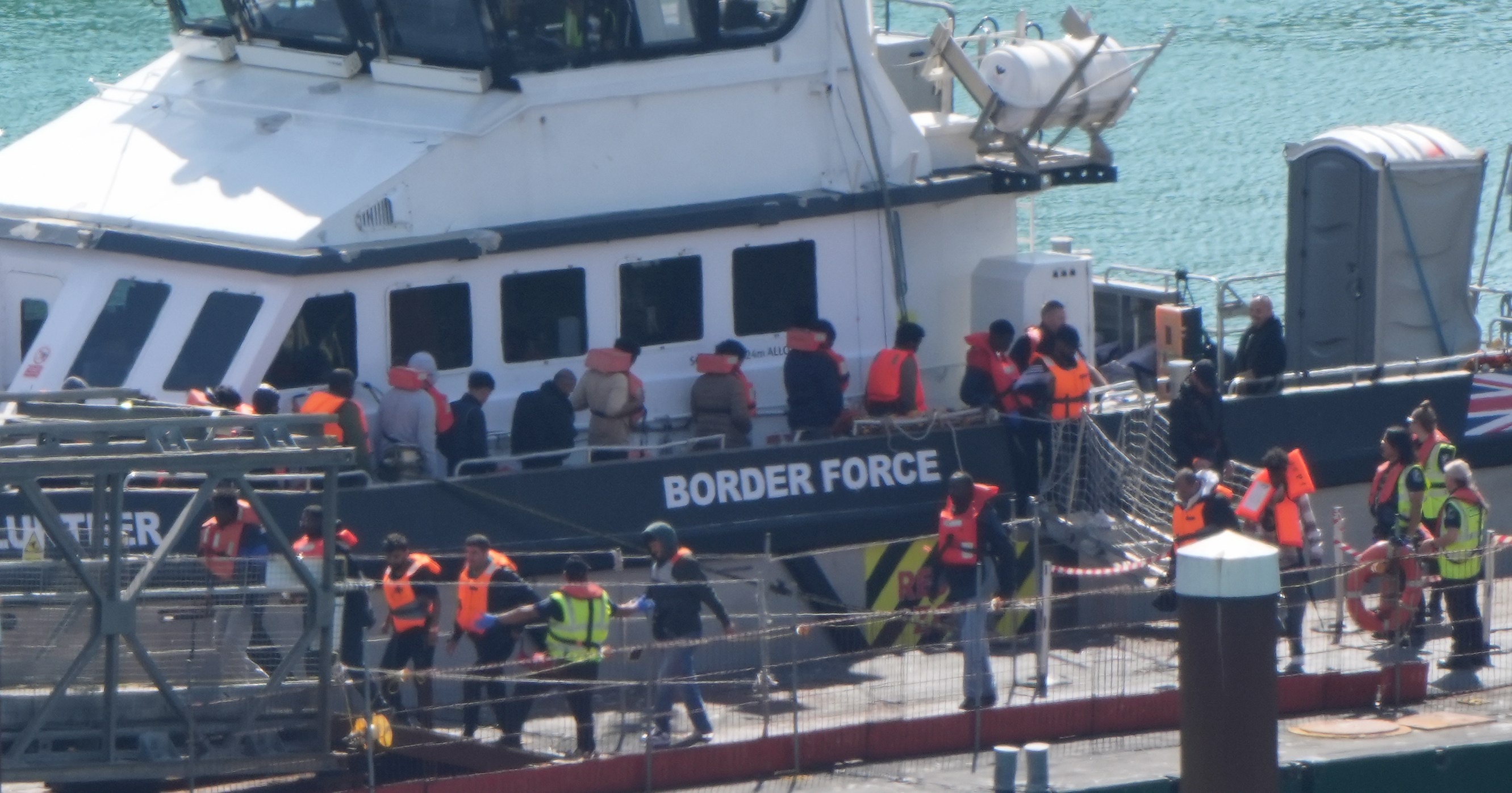On Tuesday morning, Yvette Cooper, the home secretary, went on the BBC’s Today programme to be interrogated about the government’s new “one in, one out” plan to deport illegal migrants back to France. It is the “right principle”, she said, that people who arrive on small boats should be returned.
Amol Rajan, the host, pressed Cooper. “The trouble is, a year on from being in power, the numbers are going up, not down,” he said. “Don’t you think, if you said … ‘we hope to return 5,000 a year through this scheme’ it would help win the public over?”
You could hardly hope for a better encapsulation of just how far the liberal consensus on migration has shifted in this country. Neither the Labour home secretary nor the Today show host interrogated the assumption that illegal migrants should be deported; it was merely a question of how many and how fast.
Ten years ago, at the peak of the Syrian refugee crisis, with some desperate migrants boarding boats to reach Britain, both took a very different tone. In September 2015, Cooper, as shadow home secretary, was granted an emergency debate in the House of Commons on the refugees. She made a firm appeal to the conscience of parliament, insisting that “we have a moral duty to do more”.

Migrants board an inflatable dinghy in an attempt to cross the Channel off Gravelines, northern France, in July
SAMEER AL-DOUMY/AFP
A few months earlier, Rajan wrote an opinion column in the Evening Standard lamenting the “general public hysteria about foreigners invading our island nation” as he attacked our “inhumane” asylum system.
The point is not that the politician and the journalist were wrong then and right now — no doubt both stand by their 2015 positions — but rather that the terms of this discussion have shifted quite remarkably. We are now having the debate about migration, both legal and illegal, on ground once occupied by the likes of Nigel Farage and Migration Watch. The hard-right flank is no longer even embodied by Farage but the erstwhile Reformer Rupert Lowe, who is making arguments for mass deportations and “remigration”.
What political theorists call the Overton window, the parameters within which a public discussion is held, has moved firmly to the right. Even The Economist magazine, staunchly anti-Brexit and shaper of elite opinion, recently ran a leader calling for the United Nations refugee convention to be scrapped altogether and replaced with something new, freeing wealthy countries from their current obligations towards asylum seekers.
Alexander Casella, who ran the UN’s refugee programme in Asia until 1996, heartily agreed with The Economist’s position. “This is what many people in the migration policy world think,” he says. “The conventions, their time has passed. This whole system of having people come, screening them, keeping the refugees and doing something else with the non-refugees, it just doesn’t work any more. We need something new.”
• Will UK-France treaty stop small boat crossings? The deal explained
The same shift in tone has taken place across Europe, where the Schengen free movement zone is becoming increasingly constricted. Ten years ago this month, Angela Merkel famously told Germany “Wir schaffen das” — we can manage this — as she opened her country’s doors to a wave of Syrian migration. Today, Germany has introduced enhanced border checks, as have Austria, Poland and Sweden.

A migrant holds up a poster of Angela Merkel before starting a march out of Hungary towards Germany in 2015
FRANK AUGSTEIN/AP
We have clearly passed an inflection point in Britain, too. But why? What changed?
Some of the answers are staring us directly in the face. As the home secretary pointed out on Tuesday, we are now 400 weeks into the small boats crisis and more than 25,000 people have come this year already, which is a record.
America’s re-election of Donald Trump, who has effectively shut down the asylum system on his own southern border, along with Reform’s surge in domestic opinion polls, has also highlighted just how fed up many voters are with a system that has seemingly veered out of control. Polite opinion is belatedly responding to this shift.
“Attitudes have hardened around asylum because of the visible lack of control in the Channel and around asylum hotels,” says Sunder Katwala, director of the British Future think tank. “It’s the visibility of it.”
The particular imagery of boats landing on beaches provokes an atavistic recoil from many in this country, which has always seen the Channel as its moat, protecting Britain from unwanted continental advances. “Boats are more worrying than Eurostar trains and lorries,” says Katwala.
A fateful decision
The roots of our current predicament go back decades, though, well beyond Trump or Reform. There were, of course, rows and riots over Commonwealth migration in the 1950s and 60s, culminating in Enoch Powell’s “rivers of blood” speech in 1968. But our contemporary debate over immigration really began in 1997 with the election of Tony Blair.
Net migration almost tripled in the first year of the Blair government, which relaxed rules around work and study visas. Blair was committed to his vision of a cosmopolitan, open-minded Britain, and keen for the economic benefits of immigration. And so, in 2004, as the European Union prepared for the accession of eight new eastern European countries, Blair made a fateful decision.
Rather than adopt transitional controls of up to seven years on migrants from the new countries, Britain became the only major EU country not to apply temporary restrictions.
At the time, government estimates put the maximum expected number of eastern European migrants at 13,000 a year. But almost half a million came in the four years that followed. Jack Straw, who was the foreign secretary at the time, later described the decision as a “spectacular mistake”.
“It was obvious that their public assertion was untrue,” says Sir David Davis, the Conservative MP who was shadow home secretary in 2004. “That’s where it all started really. Frankly, until then, people weren’t terribly bothered.”
A month after the accession of the “A8” countries, in June 2004 Britain held European parliament elections. The UK Independence Party (Ukip) won more than 16 per cent of the vote, doubling its share from 1999, and was rewarded with 12 seats. “I think you can draw a straight line from there to Brexit,” says Davis.

Counter-protesters hold signs and England flags at the Defend Refugees, Stand Up To Facism rally organised by Stand Up to Racism in Cheshire on Friday
DANNY LAWSON/PA
A volte-face
From 2004 onwards, net migration into this country was about 250,000 a year. So when David Cameron and the coalition government came into power in 2010, the new Tory prime minister made a speech promising to bring that figure down into the “tens of thousands”. This provoked a huge row, with Vince Cable, the Liberal Democrat business secretary, calling the speech “very unwise” and saying it risked “inflaming extremism”.
Migration did drop briefly in the early years of the Cameron government, though nowhere close to the prime minister’s stated target. But by now the world had entered the era of the smartphone, in which hyper-mobile migrants (and people-smuggling gangs) were able to communicate and move across continents with far greater ease.
The internet meant Britain’s pull factors — relative wealth, generous welfare provision, a large and poorly regulated grey economy, old imperial connections and use of the global lingua franca — became ever more apparent and appealing to far-flung populations. Combined with this were rising push factors, such as mounting war and instability. The number of people forcibly displaced by conflict doubled between 2015 and 2024, according to the United Nations High Commissioner for Refugees (UNHCR).
The human exodus caused by the Syrian civil war was heartrending, but by 2015 the hardening response to it also highlighted the limits of public sympathy on migration across Europe.
Between 2014 and 2016, John Dalhuisen was the director for Europe of Amnesty International Global, at the heart of its response to the crisis and a staunch critic of the “one in, one out” deal between the EU and Turkey signed in March 2016. Then he had a change of heart.
“By 2017 I realised I was badly wrong,” he says. “It was a volte-face.” He now runs the European Stability Initiative with Gerald Knaus, who helped broker the 2016 deal with Turkey that significantly reduced the flow of boat crossings. (Under the deal, a Syrian migrant arriving by boat in Greece was sent back to Turkey; in return a Syrian asylum seeker from Turkey was let in to the EU.)
“I never really abandoned the underlying principles, I just felt the [human] rights folk were miscalculating,” he says. “There was a flat refusal to acknowledge an underlying political reality, which is that if societies are offered a choice between open borders or borders closed cruelly, they will choose the latter. We’ve seen that everywhere, again and again. The politicians have to offer control. Asylum for all is a beautiful moral intuition but it’s not politically achievable.”
Does the former Amnesty International man not worry about pandering to public sentiment that is arguably driven, at least in part, by xenophobia and racism? Isn’t he letting the right set the terms of the debate? “Is it pandering? Yes and no. The ultimate objective is to prevent really quite toxic political forces from coming into power. If you care about a rights framework, you need to keep these people out of power.”

A demonstration by Stand Up to Racism in Southsea, Hampshire, in early August, led to a face-off with counter-protesters
OLLIE THOMPSON/SOLENT NEWS
Another surprise
The small boats era began with a handful of Channel crossings in late 2018, as smugglers shifted from using lorries and ferries. Numbers peaked at more than 45,000 in 2022, although this year is on track to exceed that. In March 2020, under pandemic conditions, the government also began housing some asylum seekers in hotel accommodation as an emergency measure. By 2023, some 50,000 asylum seekers were living in hotels, costing the taxpayer millions of pounds a day.
Alongside this, legal migration soared too. In 2021, Boris Johnson’s government made a very Blair 2004 choice, taking the post-Brexit decision to liberalise visa applications from the rest of the world. The idea, as Priti Patel, the home secretary at the time, has put it, was to attract the “brightest and best” to work in care homes, IT companies and at universities, hopefully boosting our flaccid economic growth. But again, the government drastically underestimated how many would come. In 2023, net migration reached a remarkable 906,000.
“People were understandably surprised by this,” says Davis. “It was politically tone deaf. The Treasury as an entire department is like a drug addict, addicted to using the increase in the size of the workforce to grow the economy rather than improving productivity. They had allowed a whole load of industries to become dependent on it — hospitality, agriculture. They couldn’t give up their supply.”
Many of the Johnson-era visa rules were subsequently tweaked and immigration this year is expected to be less than half the 2023 number, at about 350,000. But with illegal migration still soaring, pictures of boats crossing the Channel daily still dominating the television news channels, and Sir Keir Starmer’s promise to stop them proceeding slower than a Dieppe ferry, public anger remains high, which explains why that Overton window keeps moving.

People are brought ashore to the Border Force compound in Dover, Kent, following a small boat incident in the Channel
GARETH FULLER/PA WIRE
According to YouGov’s opinion tracker, some 56 per cent of people think immigration and asylum is the most important issue facing this country, coming in first ahead of the economy on 46 per cent. The problem, Dalhuisen points out, is not just uncontrolled immigration itself but the perception of government impotence. “People sense there’s something wrong with the entire system,” he says. “That’s a dangerous and febrile position to be in.”
Yet if (and it is a big if) something like the one in, one out scheme with France does actually work, and can be expanded across Europe, then Katwala believes the government has a chance of weathering this issue politically. “If Starmer visibly has control, he would be in a more comfortable position,” he says. “Net numbers are coming down and immigration’s salience isn’t as high for Labour voters. I think he’s got a shot at this issue, if he can show that co-operation leads to some control.”
